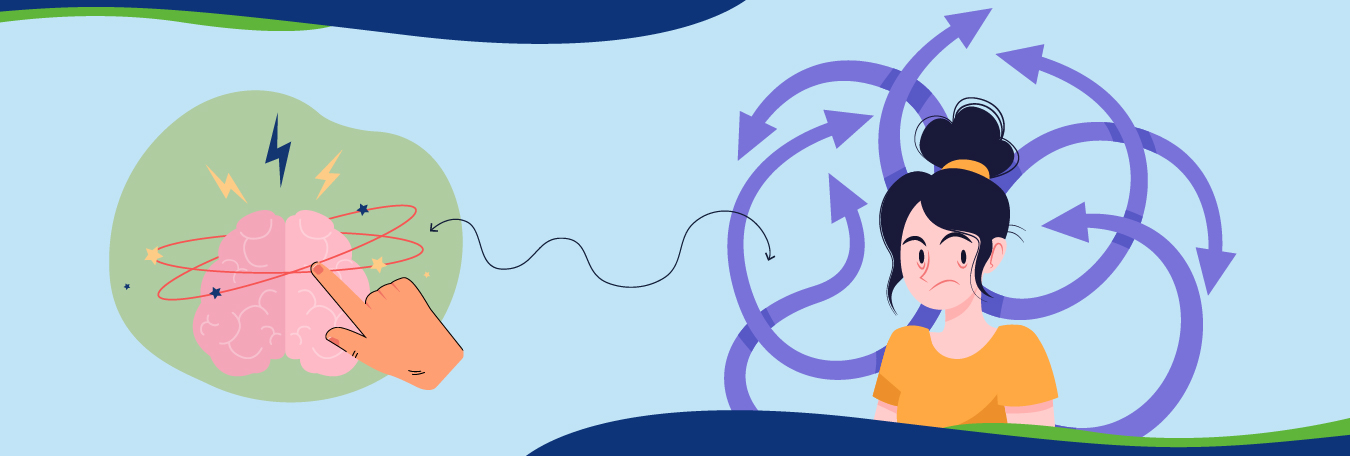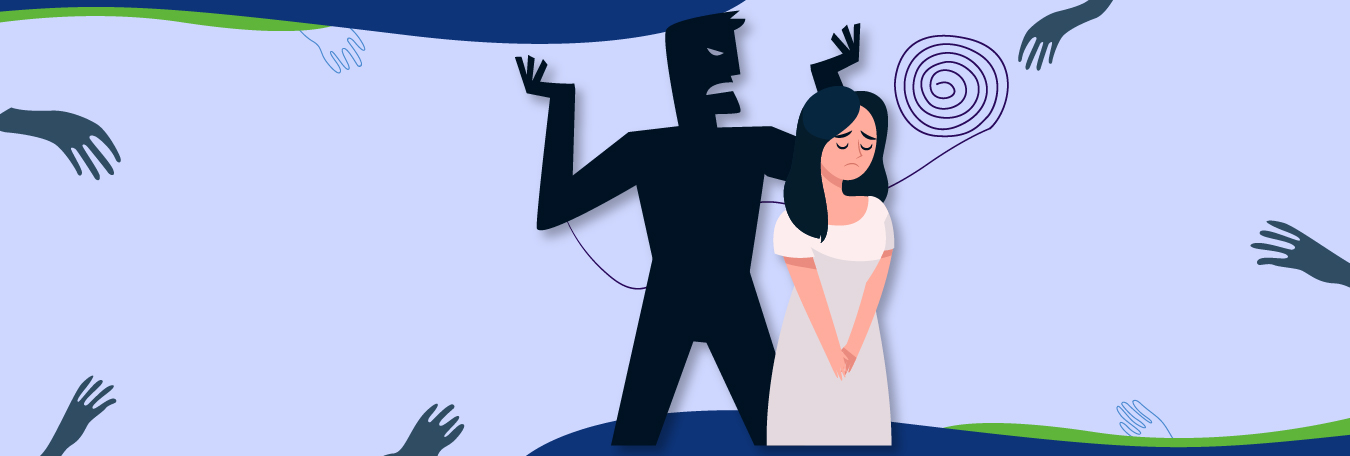Every relationship is different and demands patterns of affection.
But sometimes it happens to many of us that we become afraid of getting close to others. This is an attachment issue and can be called a disorder.
This disorder gives people insecurities. They often trace back to attachment issues or disruption in their earliest relationships that led to insecure attachment styles.
What are attachment issues?
Attachment disorder is a mental condition that affects our mood and behavior. People find it difficult to continue their relationships. The condition usually begins in early childhood, but the effects don’t stop there.
In many cases, attachment issues become mature and carried over into adulthood. It can throw a wrench into your adulthood and destroy your romantic relationship.
Attachment issues are not normally diagnosed, but people use them to refer to their attachment styles in adulthood. People who are experiencing insecure attachment style express avoidance and ambivalence in relationships and behave like a disorganized person.
Attachment disorder is actually a group of conditions that affect a person’s ability to form and maintain emotional bonds with others. It normally starts in childhood when a child is given inadequate or inconsistent care. This lack of support and care can result in an insecure emotional base and lead to difficulties in trusting others and managing emotions later in life.
Read More: Mental Health Tips For Physical And Emotional Well-Being
Attachment Disorder Types
There are two main types of attachment disorders, i.e.,
- Reactive attachment disorder (RAD)
- Disinhibited social engagement disorder (DSED).
Attachment types are used to describe how people build their lasting emotional connections with others, which is based on their early life experiences.
They can happen when children have trouble to make close bonds with their parents or caregivers. This usually happens because of difficult experiences when they were very young.
I- Reactive Attachment Disorder (RAD)
Some children with RAD may avoid being with other people. They might have had some bad experiences with adults early in life. Therefore, they struggle to trust new people. When these children feel upset or worried about something, they don’t go to their parents for a solution. They often struggle to manage these feelings and recover from emotional distress on their own.
You may have noticed that these kids find it difficult to express their feelings. They don’t look happy or excited during fun activities. They can sometimes seem cranky, sad, or afraid of people.
When these feelings last for a long time, a doctor might diagnose them with RAD, attachment problems.

ii- Disinhibited Social Engagement Disorder (DSED)
Kids with DSED act in a very different way. They show a friendly attitude to people they don’t know. You might have noticed that they walk towards strangers and start talking with them. They might even let someone hold them or provide them with a toy to play with.
These children often don’t show concern about talking to strangers or being familiar with them, even when they are with parents or without them. They may even go with strangers anywhere they take them. This is because they have not learned the important rule of being careful with strangers.
Attachment Styles
The attachment styles have been developed by British psychiatrist researchers, John Bowlby, and American psychologist Mary Ainsworth in the 1950s and 1960s, respectively. Attachment theory provides a structure for understanding these patterns.
Read More: Attention Seeking Behavior & The Emotional Struggles Behind It?
1-Secure Attachment Style
The first relationship you have as a child is most important. When you are a child, the way your parents or elder siblings treat you helps you learn how to be close to other people later on.
If your caregivers are good at understanding what you need and are there for you, it helps you feel safe. This early experience teaches you how to connect with others and handle close friendships and relationships as you get older.
As the name suggests, a secure attachment style is all about feeling safe and upright in your relationship with others. It is like a strong rope that connects you with your friends and family. This rope lets you be close to people and rely on them, and they can rely on you. You don’t have to be afraid that they might leave you or get too close. People with this style feel good about themselves and trust others.
In their elder age, these people are often trusting and kind. They talk about their feelings and what they need in a clear way. They also listen to their parents’ feelings and needs and don’t try to avoid arguments; rather, they perfectly handle them. They stay calm in times of trouble and easily solve them. Such a person is aware of their values and feels good about who they are when they are with the person they love.
This feeling of security starts when they are children. If adults take care of them, are always present when they need them, listen to their needs, and help them, children learn that they are safe and understood. They don’t need others’ help, which makes their brain learn how to feel secure.
People who have a secure attachment style normally have happier and longer-lasting relationships in their adulthood.
Read More: Defining Emotional Intelligence
2- Anxious Attachment style
Some people worry a lot about their relationships, which is called anxious attachment style.
These people normally want to be close to their partners, but worry that their partner might leave them. They also want lots of hugs and kind words to feel safe. It becomes hard for them to leave their partners due to the fear of losing. Sometimes, they might get upset about small things, i.e., their partner likes someone else, etc.
This way of thinking normally starts when they are young. Their partner gives them attention and love, but sometimes they get stuck or busy, which makes them think in such a way about the relationship.
However, such an attachment style might affect the relationship. It can be hard to keep a close connection because you might seem clingy. They might also rely on their partners to feel good, which can make things tough for both of you.
3-Avoidant Attachment Style
Avoidant style people love their liberty and independence. They like to do things on their own and don’t feel comfortable when others get closer or rely on them too much.
When they have a friend or partner, they might seem a little distant. They move away when things get too emotional, and don’t pay much attention to their partner’s feelings, or keep things to themselves.
This can make their partner feel like they are being pushed away. These people prefer talking about facts and ideas instead of feelings. When a problem arises in their lives, they avoid it until they get really upset and feel stressed and explode.
This style of attachment also begins in childhood when they don’t receive much attention and care from their elders. A child learns to take care of their own feelings.
They prefer to be self-sufficient for handling their own needs and emotional support, and also don’t want others to depend on them for anything. This can make it difficult for them to make deep, lasting friendships or relationships. Instead, they prefer short-term connections.
Read More: Social Media and Mental Health’s Dangerous Link
4- Disorganized Attachment Style
This is also known as anxious-avoidant, fearful-avoidant, or disoriented.
This attachment style makes it hard for a person to feel safe and secure in their relationships. People are often very confused about how to connect with others. They want to be close to people, but at the same time, they fear getting hurt, so they push people away. This can make the relationship confusing and difficult for them and the people they are involved with.
They are confusing personalities. One time, they want to be close to someone, and the next, they need space. It is because they might have had a hard time understanding their own feelings and can sometimes get very scared of being left alone. Sometimes they even reach selfishly and get angry or lash out. This can be painful for them and for the people who care for them.
It starts in childhood, when a child’s caregiver is both a source of comfort and fear. The child learns that the person who is supposed to keep them safe is also the person who scares them. This becomes a hard situation for a child when he can’t differentiate between how to trust others and how to feel safe in relationships.
Mostly, attachment disorder in children happens when a child goes through something very hard, like a serious illness, an accident, or has been hurt or neglected.
Being separated from a parent or having a lot of different caregivers can also be a cause of this sign of attachment issues.
This is very difficult for a person to live a normal life. They might want someone to take care of them, but then they might push that person away when they get closer.
However, people can learn to heal and have a normal life, can build healthier connections with the right professional support.
Read More: Mental Health Continuum
Finding Help From A Professional
Sometimes, big feelings like worry can be too much to handle alone. Attachment issues are one of them. A trained therapist or psychiatrist can help in this regard. You can consider them as a friendly guide for help to understand your feelings, bring you out of the past, and teach you new ways to connect with people.

Specialized Therapy
Some therapists focus on helping people with attachment issues. They apply different therapies to help you understand things that have happened in the past, like tough childhood experiences, and how you are dealing with your thoughts today. It is a safe place to talk and learn skills for solving problems and managing your feelings.
Trauma Therapy
If your attachment issues come from a difficult or scary past, a therapist who specializes in “trauma” can be a big help. They know how to gently guide you through those memories, so they don’t bother you as much.
Cognitive Behavioral Therapy (CBT)
A type of therapy called cognitive behavioral therapy (CBT) helps you look at your thoughts.
Sometimes, our brain has a habit of thinking bad things, like everyone will leave me”. These are intrusive thoughts. CBT can also help you change those thoughts to be more careful in life.
Your Brain Can Change!
The human brain is an amazing creation because it can learn new things and unlearn old things throughout our whole lives. When you have a good relationship with psychiatrists, they can help your brain to learn new things, get different experiences, unlearn old habits, and build new ones.
Read More: Is Addiction Hereditary? We Finally Trace The Answer
Couple counseling
This therapy can be effective for couples who are going through a hard time with their different styles of emotional attachment disorder. Together they can express their feelings, communicate better, and better understand each other’s points of view and mental conditions.
Online counseling
If a person can’t find it perfect to go to a psychiatrist, or has difficulty managing time, they can consult with online therapy services from the comforts of their home. This option is good for treating attachment disorders for kids and adults as well.
Seeking Professional Help!
If attachment-related disorder becomes unmanageable or affects daily life, it is good to speak with licensed mental health professionals.
You can consult with our psychiatrists who specialize in attachment-based or trauma-based therapy. Our child and adolescent psychiatry services are especially for such kinds of disorders. Besides, you can ask for related disorders like ADHD, OCD, depression, and anxiety. Live freely and independently without any mental disorder with IE Behavioral Group.




